
Henry Jaynes Fonda was an American actor whose career spanned five decades on Broadway and in Hollywood. On screen and stage, he often portrayed characters that embodied an everyman image.
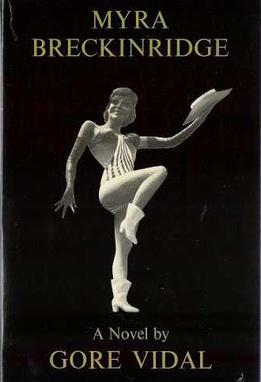
Myra Breckinridge is a 1968 satirical novel by Gore Vidal written in the form of a diary. Described by the critic Dennis Altman as "part of a major cultural assault on the assumed norms of gender and sexuality which swept the western world in the late 1960s and early 1970s", the book's major themes are feminism, transsexuality, American expressions of machismo and patriarchy, and deviant sexual practices, as filtered through an aggressively camp sensibility. The controversial book is also "the first instance of a novel in which the main character undergoes a clinical sex-change". Set in Hollywood in the 1960s, the novel also contains candid and irreverent glimpses into the machinations within the film industry.

Franklin Christenson "Chris" Ware is an American cartoonist known for his Acme Novelty Library series and the graphic novels Jimmy Corrigan, the Smartest Kid on Earth (2000), Building Stories (2012) and Rusty Brown (2019). His works explore themes of social isolation, emotional torment and depression. He tends to use a vivid color palette and realistic, meticulous detail. His lettering and images are often elaborate and sometimes evoke the ragtime era or another early 20th-century American design style.

Madge Bellamy was an American stage and film actress. She was a popular leading lady in the 1920s and early 1930s. Bellamy's career declined in the sound era and ended following a romantic scandal in the 1940s.

Norma Marie Talmadge was an American actress and film producer of the silent era. A major box-office draw for more than a decade, her career reached a peak in the early 1920s, when she ranked among the most popular idols of the American screen.

Herbert Brenon was an Irish-born U.S. film director, actor and screenwriter during the era of silent films through 1940.
Gavin Lambert was a British-born screenwriter, novelist and biographer who lived for part of his life in Hollywood. His writing was mainly fiction and nonfiction about the film industry.

Anita Stewart was an American actress and film producer of the early silent film era.

Ravished Armenia is a book written in 1918 by Arshaluys (Aurora) Mardiganian about her experiences in the Armenian genocide.

The Sea Beast is a 1926 American silent drama film directed by Millard Webb, starring John Barrymore, Dolores Costello and George O'Hara. The film was a major commercial success and one of the biggest pictures of 1926 becoming Warner Brothers' highest grossing film. The Sea Beast is the first adaptation of Herman Melville's 1851 novel Moby-Dick, a story about a monomaniacal hunt for a great white whale. However, the film alters the novel's plotline by establishing prequel and sequel elements that are not in the original story—such as the romancing of Esther and Ahab's safe return, respectively—and substitutes a happy ending for Melville's original tragic one. Some of the characters in the film do not appear in Melville's original novel. The film was so successful that in 1930 Warner Bros redid it in English and German, under the title Moby Dick, with Joan Bennett taking the role of Ahab's love because Dolores Costello was pregnant at the time.

Man Hunt is a 1941 American political thriller film, directed by Fritz Lang and starring Walter Pidgeon and Joan Bennett. It is based on the 1939 novel Rogue Male by Geoffrey Household and is set in Europe just prior to the Second World War. Lang had fled Germany into exile in 1933 and this was the first of his four anti-Nazi films, which include Ministry of Fear, Hangmen Also Die!, and Cloak and Dagger. It was Roddy McDowall's first Hollywood film after escaping London following the Blitz. Man Hunt was one of many films released in 1941 that were considered so pro-British that they influenced neutral members of the U.S. public to sympathize with the British side in World War II.

The Scarlet Letter is a 1926 American silent drama film based on the 1850 novel of the same name by Nathaniel Hawthorne and directed by Swedish filmmaker Victor Sjöström. Prints of the film survive in the MGM/United Artists film archives and the UCLA Film and Television Archive. The film is now considered the best film adaptation of Hawthorne's novel.
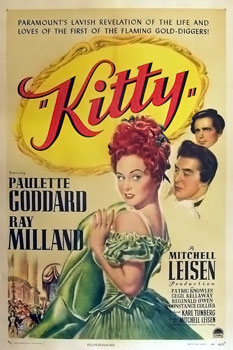
Kitty is a 1945 film, a costume drama set in London during the 1780s, directed by Mitchell Leisen, based on the novel of the same name by Rosamond Marshall. The screenplay is by Karl Tunberg. It stars Paulette Goddard, Ray Milland, Constance Collier, Patric Knowles, Reginald Owen, and Cecil Kellaway as the English painter Thomas Gainsborough.
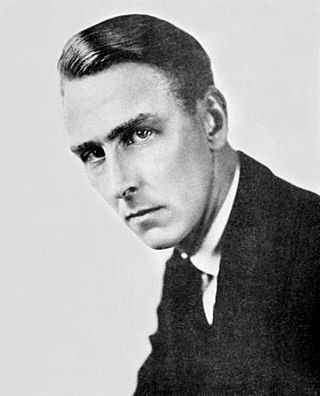
Percy Marmont was an English film actor.

We Live Again is a 1934 American film directed by Rouben Mamoulian and starring Anna Sten and Fredric March. The film is an adaptation of Leo Tolstoy's 1899 novel Resurrection (Voskraeseniye). The screenplay was written by Maxwell Anderson with contributions from a number of writers, including Preston Sturges and Thornton Wilder.
Anthony Slide is an English writer who has produced more than seventy books and edited a further 150 on the history of popular entertainment. He wrote a "letter from Hollywood" for the British Film Review magazine from 1979 to 1994, and he wrote a monthly book review column for Classic Images from 1989 to 2001. He is a member of the editorial board of the American Film Institute Catalog.
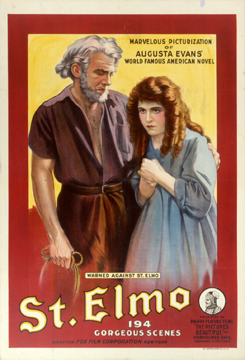
St. Elmo is a 1914 American silent drama film produced by the Balboa Amusement Producing Company and distributed by William Fox's Box Office Attractions Company. It was the first feature-length film adaptation of Augusta Jane Evans's 1866 novel of the same name. The story follows the life of the title character, who kills his cousin over the love of Agnes, falls from grace, and eventually finds redemption and love with Edna. It is disputed who directed the film; many sources credit Bertram Bracken, while others list St. Elmo as J. Gordon Edwards's directorial debut.
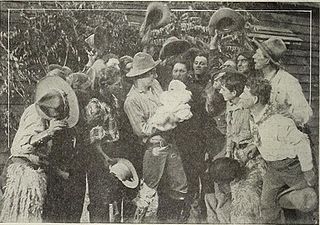
Life's Shop Window is a 1914 American silent drama film directed by J. Gordon Edwards and starring Claire Whitney and Stuart Holmes. It is a film adaptation of the 1907 novel of the same name by Annie Sophie Cory. The film depicts the story of English orphan Lydia Wilton (Whitney), and her husband Bernard Chetwin (Holmes). Although Wilton's marriage is legitimate, it was conducted in secret, and she is accused of having a child out of wedlock. Forced to leave England, she reunites with her husband in Arizona. There, she is tempted by infidelity with an old acquaintance, Eustace Pelham, before seeing the error of her ways and returning to her family.

Rendezvous at Midnight is a 1935 American mystery film directed by Christy Cabanne and starring Ralph Bellamy, Valerie Hobson, Catherine Doucet and Irene Ware. The film was produced and distributed by Hollywood studio Universal Pictures. The film's title was originally intended for Secret of the Chateau, released the previous year, and the working title was then recycled for this film.

Dread Journey is a 1945 mystery thriller novel by the American writer Dorothy B. Hughes, noted for her hardboiled style. It was first published by Duell, Sloan and Pearce.


















